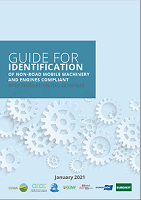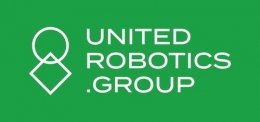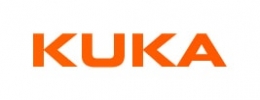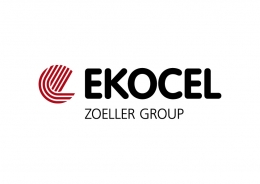
News
June 2015
VDMA Takes on ING-DiBa's Study About Robots and Jobs
"Worries about a future where robots snatch people’s jobs away are unfounded. Humans and robots are a winning combination. Even sensational reports to the contrary cannot blind us to this fact," says Patrick Schwarzkopf, Managing Director of the VDMA trade association Robotics + Automation and Director of EUnited Robotics, at the annual press conference in Frankfurt.
In the past years, robots have considerably contributed to economic growth and prosperity worldwide. "The use of robotics and automation offers outstanding opportunities for stable economic development, high-quality and ergonomic jobs as well as safe and affordable products," Patrick Schwarzkopf, Managing Director of the VDMA trade association Robotics + Automation, said at the annual press conference in Frankfurt on Thursday, June 12th, 2015. "Worries about a future where robots snatch people’s jobs away are unfounded. Humans and robots are a winning combination. Even sensational reports to the contrary cannot blind us to this fact," says Schwarzkopf. The German robotics and automation sector saw a new record in 2014 by achieving a turnover increase of 9 percent to 11.4 billion euros. In the current year a turnover growth of 5 percent is expected.
"Prospects are good that the industry will reach the turnover mark of 12 billion euros by the end of the year," said Hans-Dieter Baumtrog, Chairman of VDMA Robotics + Automation. In the first four months of 2015, order intake exceeded last year's level by 11 percent. Demand came mainly from abroad. In 2014, exports already accounted for 55 percent. The largest export market is China where investments are increasingly being made in automation technology in order to advance into technologically advanced markets in the future.
No paradox – robots and jobs
Example German automotive industry: Being by far the largest customer sector, the automotive industry expanded its population of industrial ro-bots in Germany by 15 percent up to 92,000 units between 2010 and 2014. In the same period its number of employees increased by 10 per-cent to 775,000. This shows that the prevailing fear that automation takes people’s jobs away is unfounded. Meanwhile in many instances the direct collaboration of humans and robots is possible. Sensor technology makes robots so safe that they can do without protective fences.
Example North America: The country is bringing industries back home which it had outsourced to low-wage countries years ago. The Americans realised that a strong industrial basis is important for consistent growth. However, this re-shoring is only possible because enterprises have become more competitive by adopting automation.
ING-DiBa robot study not useful
With its study "The robots are coming – consequences of automation for the German labour market", the ING-DiBa bank caused a great stir in April. According to the survey 59 percent of jobs examined in Germany would be in danger sooner or later due to increasing automation. This would correspond to 18 million jobs. The chances opened up by use of robots for new professions and employments, however, are not quantified. Instead, an unrealistic assessment of technology leads to a distortion of reality. The authors claim for example that 1.9 million office clerks and secretaries would be robotised, merely 250,000 jobs would remain. "In our view this is not at all a realistic assumption," says Schwarzkopf. The German Federal Ministry of Labour has verified the automation potential, not in terms of profession but in terms of tasks performed. The result was that only about 12 percent of all jobs show a profile with high automation probability.
The study "Robots at Work" published in February 2015 analyses the impact of increasing automation on the economic development of 17 countries. Its authors Georg Graetz of Uppsala University and Guy Michaels of the London School of Economics, however, come to a dif-ferent conclusion. On average a good 10% of GDP-growth and 15% of the productivity gains were attributable to increased robot use. The experts did not find a reduction of employment but rather an increase of wages. "From this we conclude that technical progress has made human work more valuable", Schwarzkopf said.
In 2013, the international robot association IFR already discovered in its study "Positive Impact of Robots on Employment" that per robot used, three to five jobs are newly created in manufacturing.
The positive impact can also be seen in the German economy: The robot population increased by almost 20 percent to 176,000 units between 2010 and 2014. In the same period, overall employment rose by 1.6 million, reaching 42.58 million. In the past five years, 100,000 new jobs were created in the mechanical engineering industry alone. This sector currently employs 1,008,000 people.
Record turnover in all sub-sectors
Robotics as a sub-sector of robotics and automation increased its turno-ver by 7 percent, reaching 3.3 billion euros in 2014. Machine vision – ranging from optical quality inspection to automated toll road enforcement – recorded the largest increase of 16 percent, reaching 1.9 billion euros. The turnover of integrated assembly solutions, i.e. components and systems for assembly and handling, increased by 8 percent to 6.2 billion euros. In the course of this growth the number of employees in the entire sector rose by 3 percent, reaching almost 52,000. It is expected that employment figures will rise considerably in the next years.
Robotics on the increase worldwide
According to an IFR survey more than 225,000 robots were newly in-stalled in 2014. This corresponds to a rise of 27 percent compared to the previous year. Europe showed a comparatively moderate growth rate of 4 percent, whereas North America had a more substantial rate of 8 percent. Installation of robots in Asia increased by 42 percent, mainly driven by China. "China does not content itself with employing robots. It is the express strategy of the Chinese government to become a strong and innovative robot country," says association representative Baumtrog.
The growing interest in robotics worldwide is also reflected in the record participation in AUTOMATICA, the leading trade fair of the industry, taking place in Munich next year. Even today, a year earlier, 91 percent of the exhibition space has been booked. AUTOMATICA presents the new possibilities of production optimisation: Industry 4.0, human-robot col-laboration and professional service robotics.
Quicklinks
EUnited AISBL- European Engineering Industries Association,
Industrious Brussels EU District, Avenue des Arts 6-9, 1210 Brussels, Belgium, +32 490 57 57 65
Transparency Register number: 0289344948-82
Industrious Brussels EU District, Avenue des Arts 6-9, 1210 Brussels, Belgium, +32 490 57 57 65
Transparency Register number: 0289344948-82
© 2025 Eunited aisbl, Bruxelles














































































































